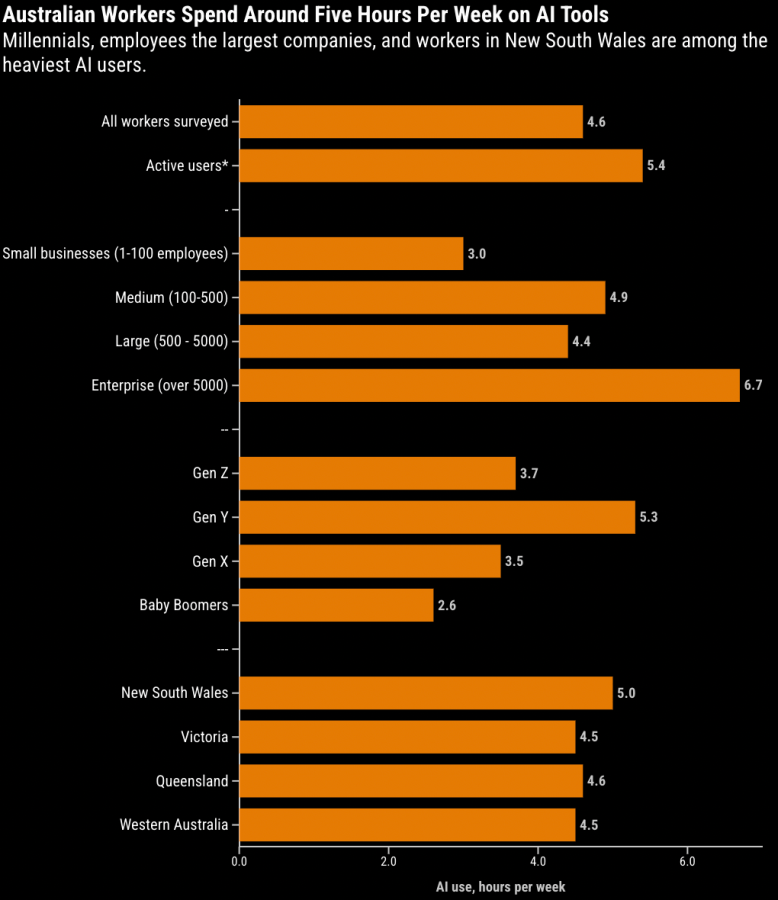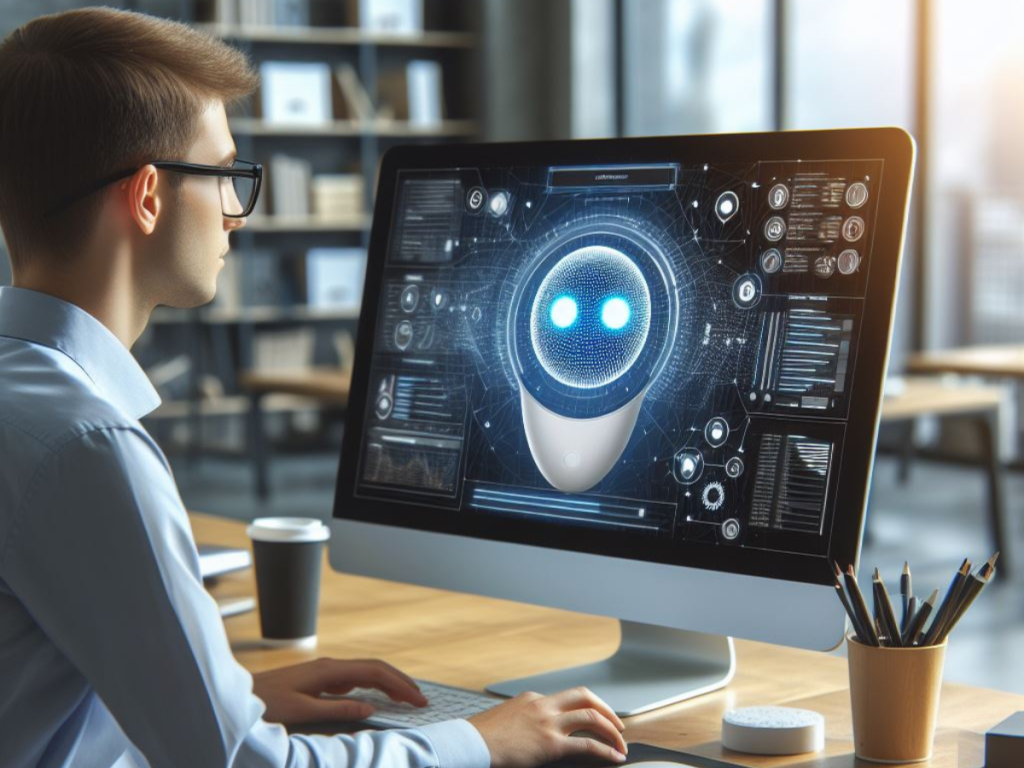How much money would you be willing to pay to be more productive at work? As it turns out, one in five Aussies are willing to spend more than $700 a year to secretly use Artificial Intelligence (AI) in the workplace.
New research conducted by Fusion Digital found the average Aussie office worker spends 4.6 hours a week using AI tools while on the clock. Employees at larger corporations tended to use AI tools the most – for an average of 6.7 hours a week, which is equivalent to over 43 working days a year.

So can AI be trusted in the workplace? The research found attitudes towards AI were generally split with 44 percent believing AI chatbots – like ChatGPT – generated accurate answers and 33 percent saying it was only accurate “sometimes”.
Paying for productivity – how much is it really worth?
The research found the average Australian worker was prepared to pay $60 a month for AI tools, which is equivalent to more than $700 a year.
| Rank | Australian State | Percentage willing to pay for AI tools (monthly) |
| 1 | Western Australia | 65% |
| 2 | South Australia | 61% |
| 3 | New South Wales | 61% |
| 4 | Victoria | 60% |
| 5 | Queensland | 57% |
“Our research shows how much AI has impacted the workplace – specifically over the last 12 months. As digital marketers, we’ve seen first-hand the pace of change and adoption. This technology is here to stay – and it certainly won’t be slowing down,” Fusion Digital said.
“I think we’re a way off AI taking everyone’s jobs, but ethical policies and safeguards are yet to be seen. However, change is a given. Some roles will be redundant, some will need fewer people, while other roles might remain but with 10 times the output.”
It’s not Gen X leading the charge on using AI at work
Surprisingly Gen Z were the most wary of AI, according to the research. The survey revealed millennials were the most enthusiastic about AI, with half (49 percent) believing it’ll have a positive societal impact and nearly three-quarters (73 percent) saying it made their job easier.
Baby Boomers and Gen Z’s attitudes actually aligned the most, with 50 percent and 42 percent respectively believing AI had a negative impact.





